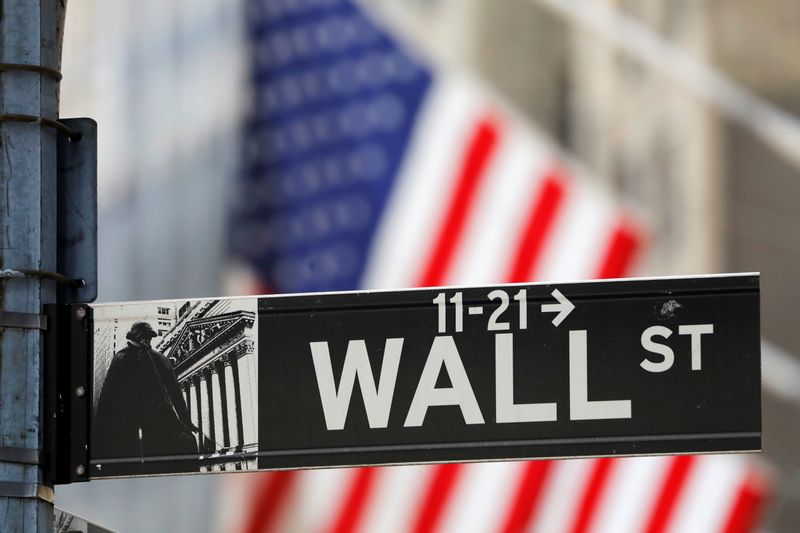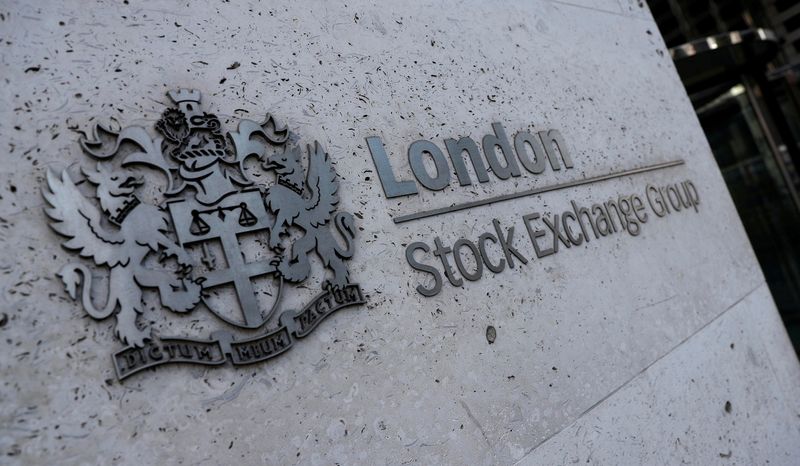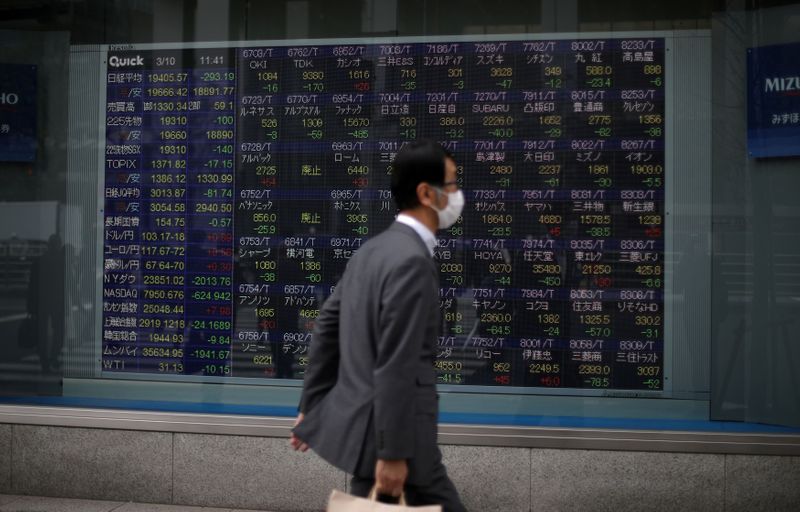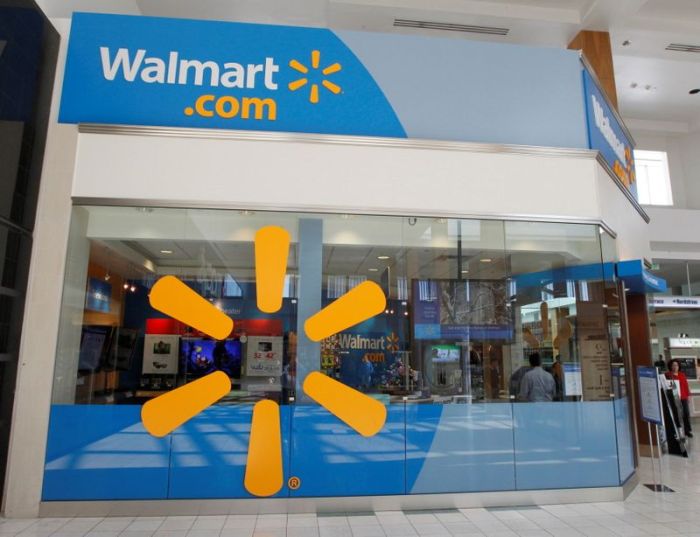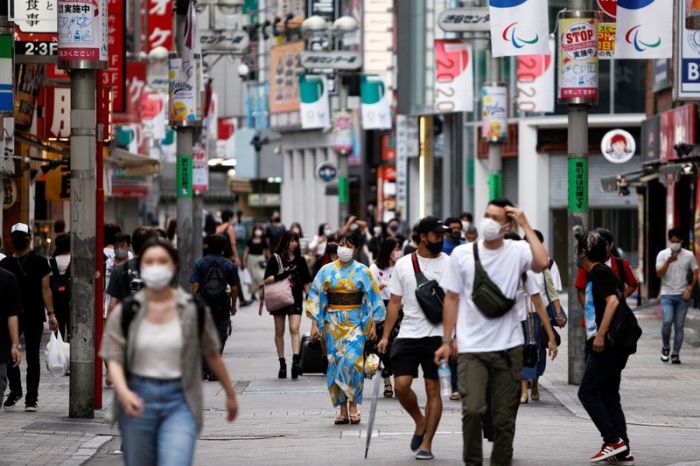WASHINGTON/LONDON (Reuters) – European stocks pared losses and Wall Street reversed earlier gains on Thursday as investors weighed uncertainty over central bank tapering and economic recovery due to the coronavirus Delta variant alongside strong U.S. weekly jobless claims data.
Major U.S. indexes ended weaker but stayed close to all-time highs.
The Dow Jones Industrial Average fell 0.43% to end at 34,879.38 points. The S&P 500 lost 0.46% to 4,493.28. The Nasdaq Composite dropped 0.25% to 15,248.25.
Federal Reserve Bank Governor Michelle Bowman voice Wednesday joined the growing number of policymakers who say the weak August jobs report likely will not throw off the central bank’s plan to trim its $120 billion in monthly bond purchases later this year.
Earlier in the day, U.S. data showed Americans filing new claims for jobless benefits fell to the smallest number in nearly 18 months last week, offering more evidence that job growth was curbed by labor shortages rather than cooling demand for workers. The data stoked expectations the Fed may start early tapering of economic support.
After falling as much as 0.9% in morning trade, the pan-European STOXX 600 index ended largely unchanged around 467.57 points. The index had shed 1.5% over the past two days on fears of a more-hawkish-than-expected ECB.
“We’re seeing some modest weakness mainly because the market is just in flux. There is no real clarity on when we will start to see the Fed and ECB start to pull back stimulus,” said Edward Moya, a senior market analyst with OANDA in New York.
“Wall Street is still bullish. You’re going to have a slow Fed as far as tapering and interest rate hikes. We will see a tremendous amount of accommodation to pump up this economy.”
Euro zone bonds yields tumbled as the European Central Bank took its first tentative step in withdrawing COVID-era stimulus. Southern Europe led a fall in euro zone sovereign bond yields.
The euro rose 0.13% against the dollar, its first gain in four sessions, while French 10-year yields turned negative. [GVD/EUR]
Longer-dated U.S. Treasury yields fell after a strong auction for 30-year bonds closed out $120 billion in coupon-bearing supply this week. [US/]
Instead of hinting at any potential end date for its pandemic-era purchase programme, ECB President Christine Lagarde channelled the spirit of former British Prime Minister Margaret Thatcher, saying: “The lady isn’t tapering.”
Germany’s 10-year yield, the benchmark for the bloc, fell. [GVD/EUR]
FRAGILE CHINA
MSCI’s benchmark for global equity markets fell 0.42%. Emerging markets stocks fell 1.03%.
The UK’s FTSE 100 dropped 1% with low-cost airline easyJet tumbling over 10% as it tapped shareholders for 1.2 billion pounds ($1.7 billion). [nL8N2QB15H] [.EU]
MSCI’s broadest index of Asia-Pacific shares ended down 1%, in its worst daily performance since Aug. 19 when markets worried about the Fed tapering its massive asset purchase programme.
Chinese tech giants Tencent Holdings Inc, NetEase Inc and Alibaba Group Holding Ltd had slumped 8.5%, 11% and 6% respectively after online gaming chiefs were summoned by authorities to check they were sticking to strict new rules for the sector.
“The global story is looking soft and it’s being hit by the Delta variant plus concern about potentially the Fed still moving towards a taper,” said Rob Carnell, Asia head of research at ING. “It’s an unsettling combination of things.”
Stocks in Hong Kong, where many heavyweight Chinese firms are also listed, shed 2.3%.
News that Chinese authorities had told gaming firms to stop focusing “only on money” and “only on traffic” had hurt companies with large gaming operations. Tencent fell 8.5%, Bilibili lost nearly 9% and NetEase slumped 11%.
Evergrande, the country’s most indebted property giant, was hit with more turbulence.
Media reports the company would suspend some loan interest payments and payments to its wealth management products sent its shares down more than 10% at one point, although they recovered almost half of the drop on news that some creditors had agreed to loan payment extensions.
Korea’s Kospi fell 1.5%, also under pressure from regulatory scrutiny of local tech players. Korean fintech names in the spotlight included Kakao Corp, which sank 7.2%, and Naver Corp, down 6.9%.
Australian stocks lost nearly 2% after payrolls data showed a sharp drop in jobs in the first half of August.
Bullion was buoyed by a slight retreat in the dollar. Spot gold prices rose 0.32% and futures settled up 0.4%, at $1,800 per ounce. [GOL/]
Oil prices fell on China’s plan to tap state reserves and a smaller-than-expected drawdown in U.S. crude supplies.
In volatile trade, Brent futures fell $1.15, or 1.6%, to settle at $71.45 a barrel. U.S. West Texas Intermediate (WTI) crude fell $1.16, or 1.7%, to $68.14. That was the lowest settlement for both since Aug. 26. [O/R]
($1 = 0.7246 pounds)
(Additional reporting by Alun John in Hong Kong; Editing by Carmel Crimmins, Nick Zieminski and Richard Chang)

